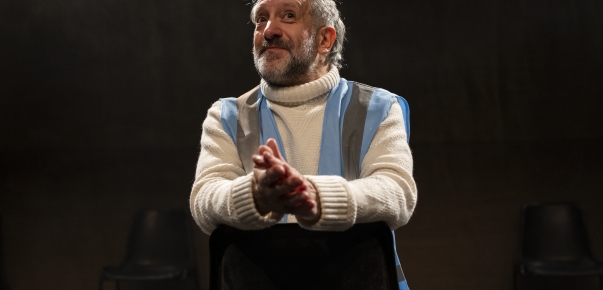And Then Come The Nightjars by Bea Roberts
10 Jan 2012In 2001, I was your average rural teenager living a frustrated existence on the edge of Dartmoor. And then Foot and Mouth disease swept the West Country. My overriding memory of that time is of a very definite sense of invasion; suddenly everywhere seemed to have locked gates and new regulations. Kids from farming families disappeared from classes, all events seemed cancelled or suspended, there were disinfectant mats on the roads, angry debates and campaigns in the Western Morning News. But perhaps the most vivid memories for myself and many others were the images of entire horizons, once idyllic, now burning with thousands of slaughtered animals.
Until And Then Come The Nightjars I’d never written anything about Devon and ten years on the Foot and Mouth crisis still seems strangely under-reported. With barely any artistic response or press coverage, the recent anniversary passed with little note; it was almost like it had been a strange communal nightmare for those who lived through it and perhaps too private or too unreal for those who hadn’t. Yet every time I return home the scars left by Foot and Mouth are still very much in evidence, confounded by the successive traumas of supermarket attrition of meat and dairy prices, a decline in local tourism and a surge in second home-owning. This has been a historic decade for the West Country filled with huge external pressures, which have radically altered the physical, cultural and economic landscape of Devon.
I was passionate about telling an authentic West Country story far removed from the usual chocolate box period drama; a contemporary story full of the gutsy, contradictory characters and irreverent humour I’d grown up surrounded by. Early on in the writing process, I came up with the title, And Then Come The Nightjars, a reference to the folklore belief that nightjars caused sickness amongst cattleand just one of the ways I wanted to saturate the stage with the idioms, sounds and history of the countryside.
I came to the Bristol Old Vic with an epic about a community under siege but after many drafts and a strict directive from Sharon Clark that there were to be no cows on stage, what emerged was the pivotal relationship between Michael and Jeff. A farmer and a vet who are by turns colleagues and enemies, they develop a tender and unusual friendship forged in the fire of these historic events. Despite its domestic confines l feel happy that the play remains the epic I wanted to write and what it may have lost in extras and livestock, it’s gained in intimacy and human scale.
For me And Then Come The Nightjars is a national yet personal story I felt compelled to tell; a vivid and honest story of two ordinary men who live through extraordinary times with occasional dignity and constant humour.
After a challenging and formative journey with the Bristol Old Vic, I’m delighted to be able to share this work with you as part of Ferment. I hope you enjoy the play and that, as we say in Devon, I’ll be seein’ you dreckly.
And Then Come The Night Jars is part of Ferment this January at Bristol Old Vic on the Sat 21 at 5pm


